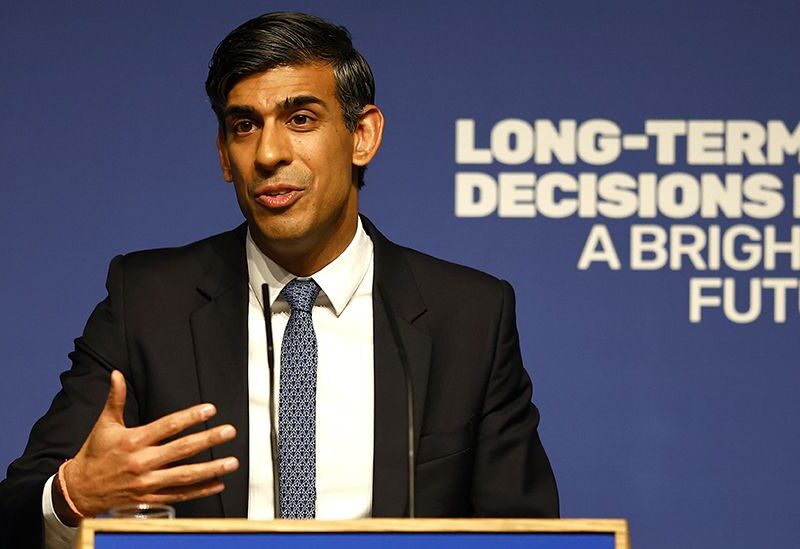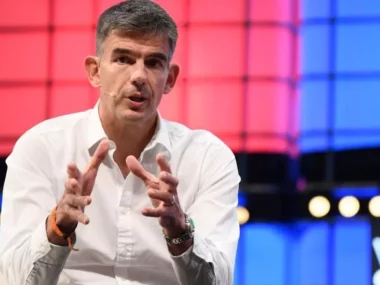Prime Minister Rishi Sunak has cautioned that artificial intelligence might simplify the process of constructing chemical and biological weaponry.
Prime Minister Rishi Sunak has expressed concerns that in a worst-case scenario, society might lose all control over AI, rendering it impossible to power down. Despite debates regarding the potential harm, he emphasized the need not to ignore the risks associated with AI. In a speech aimed at positioning the UK as a global leader in AI, he stated that AI is already generating employment opportunities and predicted that its further development would drive economic growth and productivity, though he acknowledged its impact on the job market.
The Prime Minister’s address, delivered on Thursday morning, outlined both the capabilities and potential risks of AI, including cyberattacks, fraud, and child exploitation, following the release of a government report. Sunak highlighted one of the report’s concerns, which was the potential use of AI by terrorist organizations to amplify fear and disruption on a larger scale.
He stressed the importance of making the mitigation of AI-related risks, particularly those that could lead to human extinction, a global priority, while also urging against alarmism. Despite these risks, he maintained his optimism regarding AI’s potential to improve people’s lives.
A more immediate concern for many is the disruption that AI is already causing to jobs. Sunak pointed out that AI tools are becoming increasingly proficient in tasks like contract preparation and decision-making, roles traditionally carried out by human employees. He believed that education was the key to preparing individuals for the evolving job market, stating that technology has historically brought changes to the way people earn a living.
Sunak emphasized that it’s overly simplistic to say that artificial intelligence will “take people’s jobs,” encouraging the public to see technology as a “co-pilot” in their daily work activities.
Various reports, including declassified information from the UK intelligence community, have presented a range of cautions regarding the potential threats that AI could present in the coming two years. According to the government’s report titled “Safety and Security Risks of Generative Artificial Intelligence to 2025,” AI could be harnessed for:
- AI could amplify terrorist capabilities in areas such as propaganda, radicalization, recruitment, fundraising, weapons development, and the planning of attacks.
- AI could lead to an escalation in activities like fraud, impersonation, ransomware attacks, currency theft, data harvesting, and voice cloning.
- Increase child sexual abuse images
- AI could potentially be employed to plan and execute cyberattacks.
- AI has the potential to undermine trust in information and employ ‘deepfakes’ to shape and influence societal discourse.
- AI might be utilized to compile information about physical attacks carried out by non-state violent actors, encompassing knowledge on chemical, biological, and radiological weapons.
There is a division among experts regarding the threat posed by AI, and past concerns about emerging technologies have not always materialized as feared.
Rashik Parmar, CEO of The Chartered Institute for IT (BCS), noted, “AI won’t evolve into something like ‘The Terminator.’ If we take the right steps, it can be a trusted co-pilot from our early school years to retirement.”
In his address, Prime Minister Sunak emphasized that the UK would not rush into regulating AI, as it can be challenging to regulate something that is not fully understood. He advocated for a proportionate approach that encourages innovation while positioning the UK as a global leader in AI safety.
The UK faces the challenge of competing with larger players like the US and China, which have significant resources and homegrown tech giants. While many Western AI developers collaborate, they also keep secrets about their tools’ data sources and operation.
The UK will need to find a way to ensure transparency and accountability in AI development.
Prof. Carissa Veliz of the University of Oxford noted that the UK has been hesitant to regulate AI, unlike the EU. She stated that regulation often fosters impressive and critical innovations.
The Labour party called on the government to provide concrete proposals for regulating powerful AI models and ensure public protection.
The UK is hosting a two-day AI safety summit at Bletchley Park in Buckinghamshire, with China expected to attend. This decision has drawn criticism from some, including former Prime Minister Liz Truss, who has expressed concerns about China’s stance on AI and its relationship with the West.
Prime Minister Sunak defended the decision, arguing that engaging with all leading AI powers is essential for a comprehensive AI strategy.
The summit will gather world leaders, tech firms, scientists, and academics to discuss emerging AI technology. However, some critics argue that important issues, such as digital skills and working with powerful AI tools, are not adequately addressed in the summit’s focus, potentially posing risks to people, communities, and the planet.











